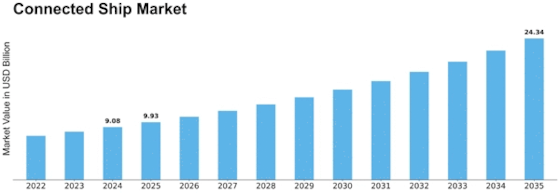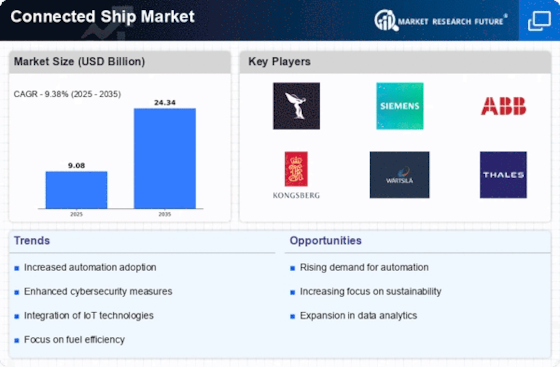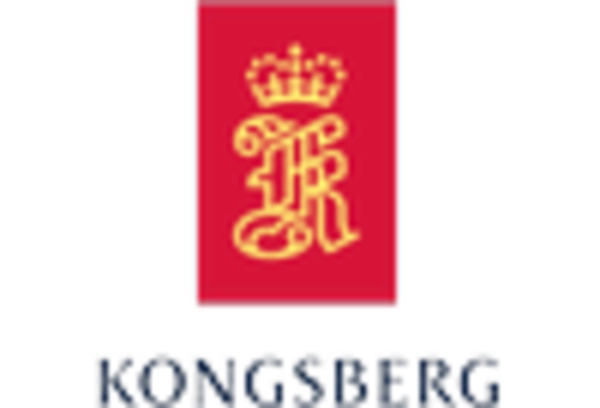Connected Ship Size
Connected Ship Market Growth Projections and Opportunities
The connected ship market has been growing so much in the recent times that its growth and size have been shaped by various market forces. Another contributing factor to this expansion is the increased need for more advanced communication and navigation systems in shipping industry. As global trade continues to thrive, operators of ships are on the lookout for new solutions that will improve their efficiency, safety as well as overall operational capabilities. To satisfy this demand, these connected ship technologies such as sensors, internet of things (IoT) appliances and data analytics enable real-time access to information regarding vessel performance, fuel utilization or maintenance needs.
Additionally, the emphasis on maritime safety regulations and environmental sustainability has resulted in the increase of connected ship solutions. These institutions are coming up with more stringent regulations aimed at safeguarding seafarers’ lives, securing goods being transported and reducing global environmental pollution emanating from this field. In response to this trend, owners of commercial vessels around the world are investing in connectivity solutions which not only make their operations efficient but also keep them aligned with emerging maritime standards.
There is also a surge of digitalization across all sectors of maritime activities. Latest ships are becoming more sophisticated consisting features like automation artificial intelligent plus machine learning among others. Such kind of technologies requires strong internet connections in order to operate smoothly while incorporated into vessels. It is thus that fleet optimization through digital transformation by ship-owners/operators increases demands for connectivity solutions based on Connected Ship models thereby allowing remote monitoring/management significantly reducing downtime across whole fleets.
Connected Ship Market is poised to reach USD 9.54 Billion by 2030 growing at a CAGR of 6.01% during (2020–2030).
Moreover, predictive maintenance has markedly affected the Connected Ship Market within maritime industry today. Shipping companies analyze data and apply machine learning algorithms for planning proactive scheduling concerned machinery’s failure prediction process by reliance on it instead traditional ones reactive strategy where only unplanned issues were fixed. This transition from reactive to proactive maintenance methodologies is facilitated through connectivity solutions that enable round the clock monitoring of shipboard machinery and systems.



















Leave a Comment